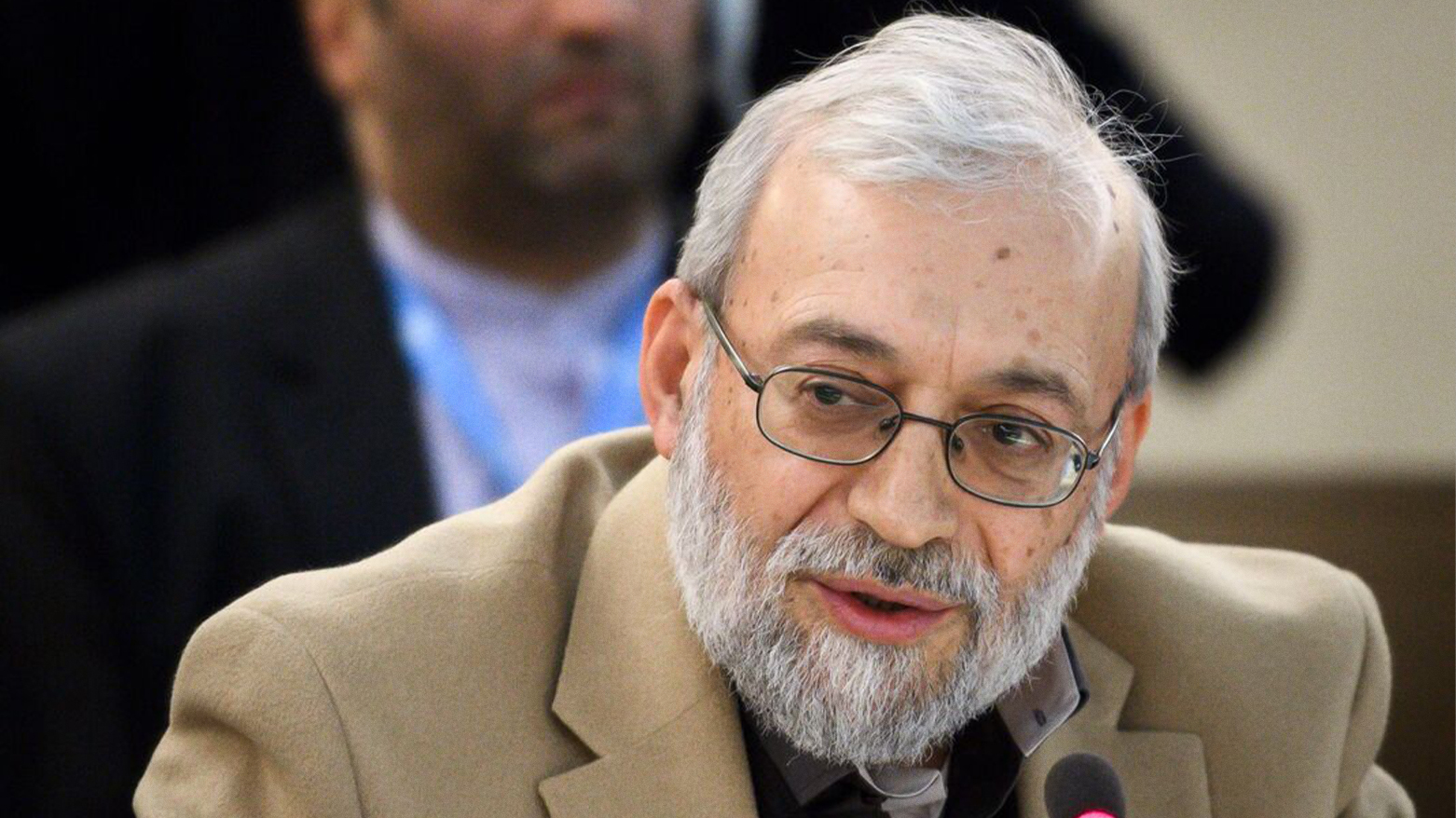Larijani: Millions Support Fatwa Against Trump Over Remarks on Iran’s Supreme Leader
Iranian official Mohammad Javad Larijani warned future U.S.-Israel attacks would trigger harsher retaliation and highlighted a powerful fatwa declaring insults to Iran’s Supreme Leader as mohareb—a religious ruling with mass support, now seen as a strategic tool of deterrence.

By Kamaran Aziz
ERBIL (Kurdistan24) – A former top adviser to Iran’s Supreme Leader has delivered a sweeping assessment of the recent 12-day war with Israel, declaring Iran the “decisive victor” after delivering “two major surprises” and warning that any future aggression would be met with even “heavier blows.” He also accused the U.S. for what he termed a US-led campaign of “scientific terrorism” and warning that any future aggression would be met with even “heavier blows.”
In an extensive interview on the “Special News Interview” program, broadcast by the state-run IRIB News Agency, Mohammad Javad Larijani, a senior expert on international affairs, argued that the conflict was a “100% American” project designed to bring Iran to its knees, a goal he said had “failed completely.”
Larijani told IRIB that the attack was long-planned by the US and Israel, who he said had prepared for at least a year using “special assassination techniques” and deploying a large number of assets inside the country. He dismissed any distinction between the two, stating, “The Zionist regime cannot do anything without America's permission… We must see this war as entirely American, with a rabid dog like the Zionist regime by its side.”
Larijani also told IRIB that the attack used the technique of “hit high-ranking officials of the system, both civilian and military, and then bring the people they had recruited inside for terrorist activities into the field, and ultimately create a collapse.” He asserted that this strategy failed and that “the enemy cannot easily use this technique again” because the network of agents inside the country has been hit and is being uprooted by Iranian intelligence forces.
While admitting that Iran was initially caught off guard by the technology used in the war's opening phase, Larijani insisted Tehran turned the tables. “We delivered two major surprises to America,” he explained. “First, they did not think we would launch such a resounding attack on the Zionist regime; this was unbelievable for them… And the bigger surprise came in the final hours of this war… Suddenly, they saw us unveil very new missiles with vast range and immense power. They were severely surprised.”
Acknowledging Iran suffered significant losses, including over a thousand martyrs, Larijani defined victory by the failure of the enemy's objectives. He repeatedly framed the Israeli-American actions as terrorism, particularly the targeting of officials and what he called the tradition of "scientist-killing," labeling it an “unparalleled disgrace of contemporary Western civilization.” He warned that by legitimizing such tactics, the West was making itself vulnerable. “Terrorism is a low-cost activity... It will even come back to haunt them,” he cautioned.
As a key deterrent, Larijani highlighted a religious fatwa issued by Iranian scholars after, he said, “the foolish president of a government [U.S. President Donald Trump] came and officially insulted and threatened our Supreme Leader with very vulgar terms.” He described this fatwa, which equates such an act to being a “mohareb [wager of war against God],” as a non-governmental action with “millions of supporters” that acts as a “lever for talking and confrontation.” He added ominously, “Surprises emerge from places like this.”
A central theme of the IRIB interview was praise for the Iranian people, whose unity Larijani called a "miracle" and an "astonishment." He said the people understood the war was an attempt to make Iran America’s “milk cow” and entered the field to defend their homeland, honor, and independence, despite having other grievances. He also lauded the government’s efforts to maintain services, crediting the Ministers of Oil, Agriculture, and Industry for their work during the crisis.
Larijani outlined a hardline diplomatic path forward, stating that negotiation is merely a “technique” and warning against the perception that Iran is “dying to sit and talk” with the US. He explicitly rejected any future discussions with Washington on “sustainable regional security” or economic interests, asserting the only acceptable topic is clearing the accusation that Iran seeks nuclear weapons. “We will discuss security with our own region, with our neighboring countries,” he said. “But with this rogue entity, we will never discuss it.”
He told IRIB that another attack from Israel and the US remains a "plausible possibility" but issued a stern warning. “The Zionist regime and America also know that if they attack this time, it will not be like the last time. The blows will be heavier, and our surprises will be much greater,” he stated.
Larijani detailed a multi-pronged strategy for legal and international retaliation, vowing to create extensive files documenting every attack on nuclear facilities in Isfahan, Natanz, and Fordow, as well as every assassination, which he called a tradition of “scientist-killing” and an “unparalleled disgrace of contemporary Western civilization.”
Regarding the "snapback mechanism" to reimpose UN sanctions, Larijani called it a “bad phrase” but not a decisive threat. He reiterated Iran’s long-standing position that if Europe were to trigger it, it would be “akin to a declaration of war,” and could lead Iran to abandon its commitments under the Nuclear Non-Proliferation Treaty (NPT).
He concluded the IRIB interview by emphasizing the role of media in a “Jihad of Clarification” to counter Western narratives and by attributing Iran’s ultimate success to divine will. “We must not lose our trust in God. All the glories were from God… and our destiny is victory, without a doubt.”